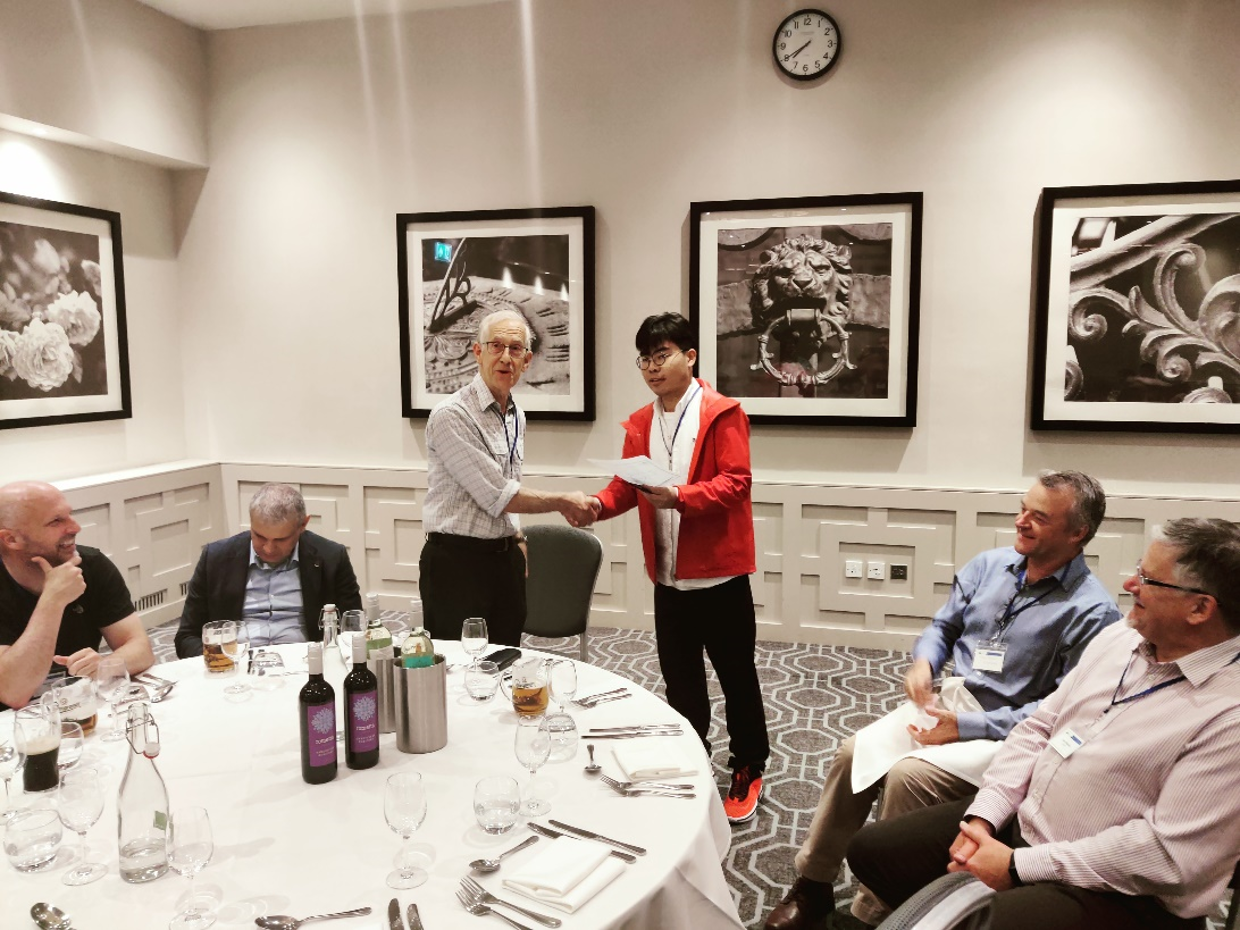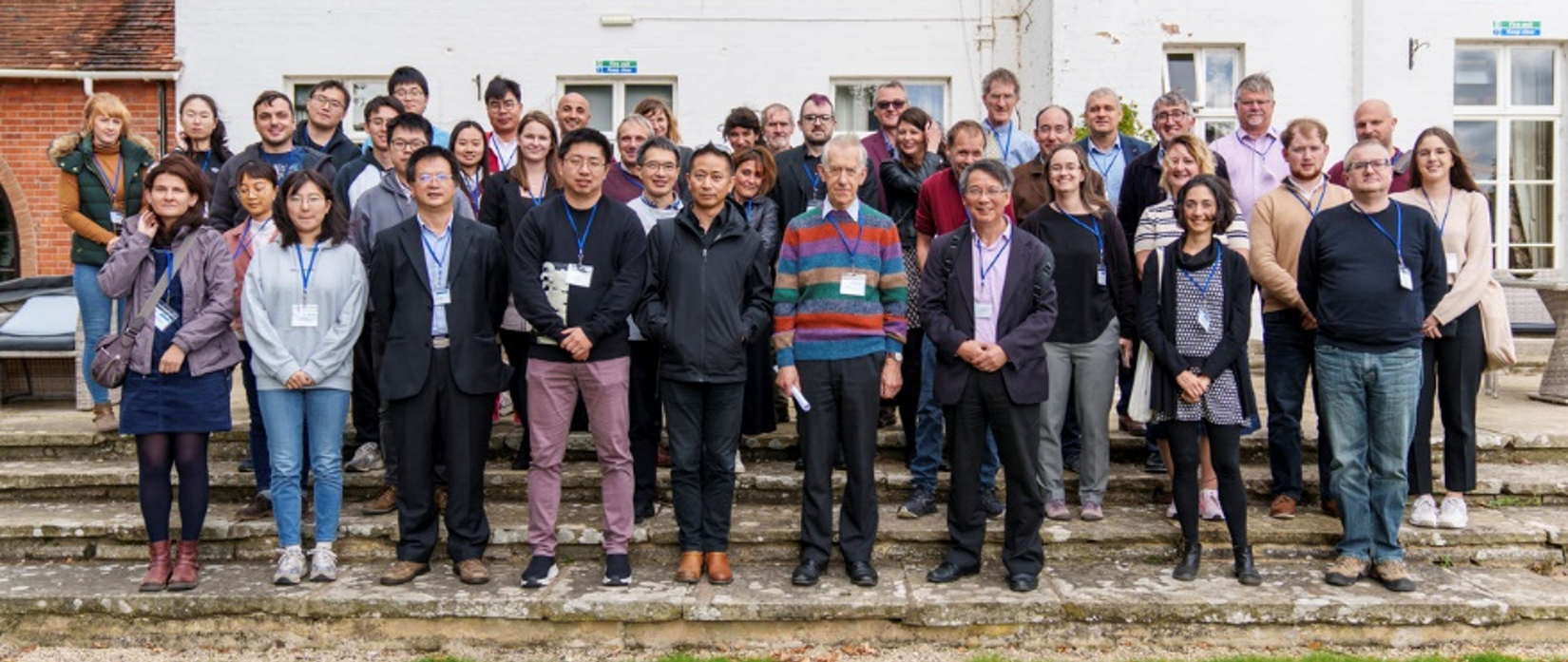The Deuteration Facility has welcomed over 60 participants of the Deuteration for Neutron Scattering Meeting, welcomed a new student, Michael, and in addition the rebuild of the D-Lab is now underway!
Contents:
Lab Update
The rebuild of the D-Lab has begun! It is anticipated that the handover from the contractors will occur in early 2023, with full operations beginning shortly after that date.
In the meanwhile, deuteration operations are continuing as before to support the user programme, with the team using the chemistry prep labs to deuterate a wide variety of chemicals. Around 30 compounds have been deuterated by the team since the last newsletter alone. Please do ensure that if you will require any deuterated material for your experiment that you
contact the D-Lab team as soon as possible.
Team Update
With Sarah now taking on the role of Group Leader, a replacement Deuteration Facility Operations Manager is currently being recruited. By the time of the next Newsletter, we will be able to introduce the new
Deuteration Facility Operations Manager.
Publications
The D-Lab team has been involved in the publication of a paper: "The synthesis of deuteriated tri-tert-butyl phosphine" in the
Journal of Labelled Compounds and Radiopharmaceuticals. The methodology described in the paper shows significantly higher yields than any other reported methodology.
Deuteration for Neutron Scattering Meeting
Big success for the fourth Deuteration for Neutron Scattering Meeting, which attracted over 60 participants from UK, US, Sweden and France. The meeting took place at Milton Hill House and ran from the 26th to the 27th of September, 2022.

Bob's congratulations going to Dr Mingrui Liao from Manchester University, who won the prize for Best Poster.
Birthday celebrations were also in order for Professor Bob Thomas, who celebrated his "80th-plus-one" birthday at the meeting. Professor Thomas is a pioneer in the development of neutron scattering and reflectivity techniques and instrumental in the Oxford Isotopic facility establishment what is now the ISIS Deuteration Facility.

Bash to remember: After being unable to have a meeting in-person the past few years due to Covid, it's clear the attendees were looking forward to meeting in-person again!
The Deuteration for Neutron Scattering Meeting is held every 18-24 months, so if you were unable to attend this meeting, please keep an eye out for the next one, planned to be in 2024.
Interview with Michael Cameron, 2022 D-Lab student.
So, where are you from, what’s your educational background?
I’m from Bangor in Northern Ireland but I’ve been living and studying in Belfast at Queens University for the past three years. Currently in my 4th year of an undergraduate Masters in Chemistry, so this is my industry year and then next year I’ll go back to Belfast and do my Masters project.
I’ve always really enjoyed science, particularly chemistry; used to do simple experiments like baking soda and vinegar or just mixing what’s in the bathroom cabinet just to see what happened (to my mother’s despair)! It’s the sort of subject where you can do that, experiment creatively, academically and professionally. So I’ve carried that passion through school, GCSE and A-levels and it never faded, hence why I’m still sticking at the degree!
What are you currently working on, what’s your project?
I’m working in the support labs, specifically in the D-lab. Current project that I’m on is making a deuterated adhesive for sample mounting in neutron scattering experiments. Using an adhesive is a good way to hold things in place and stick things together (you don’t need a chemistry degree to know that!), but unfortunately most adhesives currently used contain a lot of hydrogen, which leads to high incoherent background scatter. That’s why we’re exploring the use of deuterium, since it has a far lower incoherent background scatter. The aim is to create an adhesive that can be used in neutron experiments without masking lower intensity peaks from the sample. We’ve started with assessing commercial 1H adhesives to see what sort of physical and mechanical properties are desirable for a sample mounting adhesives.
Are you deuterating the commercial adhesives, or building it from scratch?
We’re going to be building it from scratch; to begin we looked at the composition of currently used adhesives through various analytical techniques in order to get an idea of composition and we’ve started working on our own formulations. Initially, we won’t be using deuterated materials as it would be very expensive to experiment this way but instead developing the adhesive with regular hydrogen materials initially.
Most recently, we’ve began synthesising our own polymers, which is probably my favourite area of the project. Polymerisation chemistry is something that is present on most chemistry university courses in terms of theory, but is rarely explored in practical modules. Again, these reactions are done with regular hydrogen materials, only moving on to deuterated material once we optimise the reaction.
As well as the chemistry side of the project, there’s also a physical testing side in order to assess the physical and mechanical properties of the adhesive. This is something that I would have never done on my university course and it really shows the value of the experience you can gain from an industrial placement!
How’s it going? Dangerous question, I know!
First month or so was just getting settled into site. As well as my project I would sometimes help with running more routine stuff for the D-lab, helping with making batches of chemicals that users will request, or that will be going on to make other things that users request.
Steady progress is being made on the project; I believe I have a formulation of adhesive that has desirable physical properties. The next step of course is to test this but as with all of research, there is troubleshooting to be done with the testing rig! Sometimes it can be frustrating but I like to look at it as an additional challenge and an opportunity for problem solving experience.
The variety of elements to the project means I’m in many different labs all over the site, working with different people. It’s a really good rounding for what research projects are like since it’s collaborative and multidiscipline
How are you settling in? I know you’ve been here a couple of months?
I’ve just past the three month mark, strange to think I’m already a quarter of the way through! It’s been great so far. All the people are really sound and the work is at a really nice pace you can go at things at your own speed if you need to. There’s always good support and people are really friendly to ask questions to. It’s just an interesting place to work because there’s so many people doing different stuff so every day you learn something new from someone else.
I also appreciate how valued and trusted you are as a placement student. You get to make your own decisions about your work and are given important tasks that contributes to the work at ISIS. Recently, in order to take a measurement, I had to diagnose an issue with a component on a system, replace that component and recalibrate the system with that new component. I was responsible for writing up the guide to do this which could potentially be used by staff for long after my time at ISIS.
Outside of work, what do you like to do?
Not really much of a sportsman, never really was aside from the gym and stuff. Recently got into baking though! I found myself with a lot more free time in the evenings and weekends! So over the last weekend I’ve made a focaccia. And it was delicious!
Editor's Note: The editor can confirm that Michael's focaccia is delicious!
For any further details about the D-Lab or anything included on this page, please
contact the D-Lab shared email address and check out the Deuteration Facility website.
